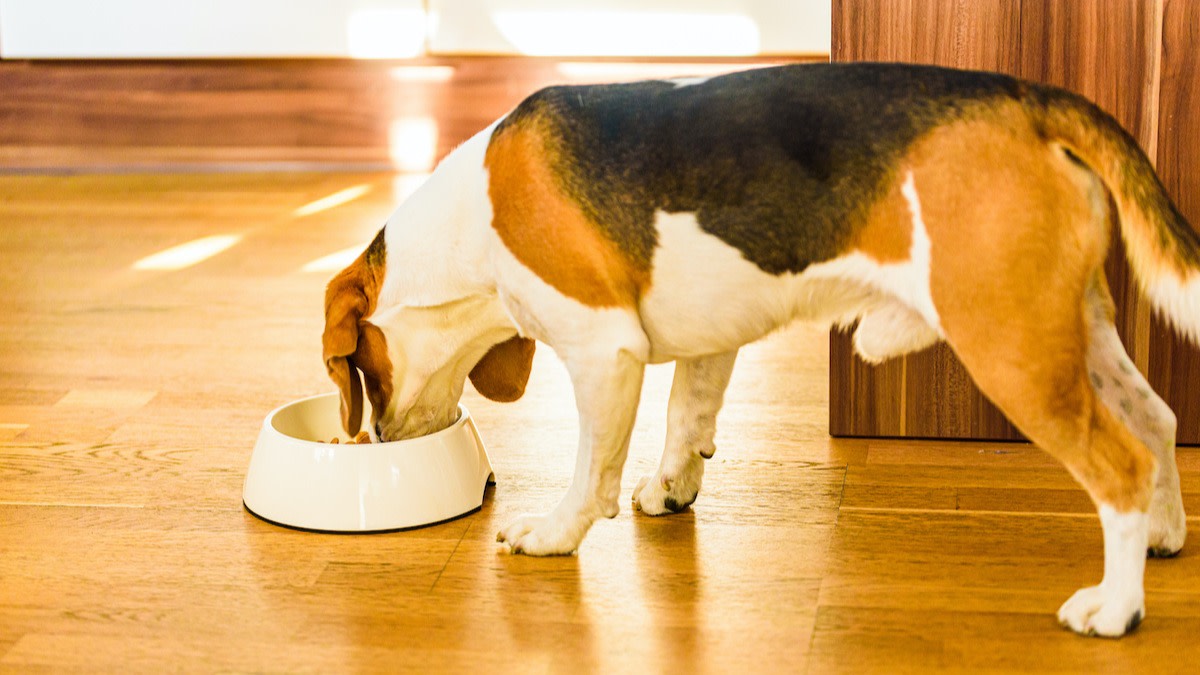Can Dogs Eat Turkey? Benefits and Risks of Turkey for Dogs
Written by MasterClass
Last updated: May 13, 2022 • 3 min read
Dogs can eat turkey; however, there are both health benefits and risks to consider before feeding your dog turkey meat. Read on to learn the right way to introduce turkey and other human foods into your dog’s diet.
Learn From the Best
Can Dogs Eat Turkey?
Dogs can eat turkey—a common ingredient in kibble brands and other commercial dog foods. As an ingredient in dog food, turkey can provide your pet with protein and other vital nutrients. If you want to incorporate turkey into your dog’s diet, consult your veterinarian about developing a diet plan to help your pet meet its daily nutritional requirements.
Avoid giving your dog processed or prepared turkey slices that might contain high amounts of sodium, sugar, or other ingredients that are harmful to dogs. If you cook turkey for your dog at home, keep it as plain as possible—omit seasonings, oils, and other flavorings as they could lead to an upset stomach. As with other foods, dogs should eat turkey in moderation to avoid excessive weight gain, which could lead to serious health problems.
3 Nutrients in Turkey That Benefit Dogs
Adding small pieces of plain turkey to your dog’s food could benefit your pet’s health. Here are three vital nutrients turkey can provide your dog:
- 1. Magnesium: Turkey contains magnesium and zinc, both of which are necessary for the health of your dog’s skin and coat.
- 2. Phosphorous: Turkey contains small amounts of phosphorus, a mineral that combines with calcium to improve your dog’s bone strength, muscle growth, and tooth health.
- 3. Protein: Turkey is high in protein, which contains essential amino acids. Your pet needs these amino acids for the health of their muscles, ligaments, tendons, and other connective tissues.
3 Risks of Feeding Turkey to Dogs
Although turkey is a relatively safe treat for dogs, consider these possible health risks before feeding large quantities of turkey to your dog:
- 1. Choking: Turkey bones, turkey skin, and stringy ligaments or fat can all be choking hazards for your pooch. It is best to cut cooked turkey into small, manageable slices—roughly the thickness of deli meat. Also, check for small bones before letting your dog eat the meat since the brittle bones of a bird can splinter and damage a dog’s digestive system or form blockages in its airway.
- 2. Pancreatitis: White turkey meat is high in protein and low in fat, whereas dark turkey meat is lower in protein and has a higher fat content. Foods or diets high in fat can cause weight-related health conditions in dogs. Be mindful of weight gain in your pet since it could lead to severe obesity, joint damage, and inflammation of the pancreas and intestinal tract.
- 3. Salmonella poisoning: Consuming raw meat, such as raw ground turkey, poses a severe threat to both people and dogs. Uncooked turkey puts your pet at risk for symptoms of acute gastroenteritis in the digestive tract or salmonella poisoning. Either condition can lead to rapid dehydration, vomiting, and diarrhea. If your dog presents any severe gastrointestinal symptoms for more than a few hours, seek medical attention immediately.
How to Feed Turkey to Your Dog
Here are a few standard guidelines to follow when introducing turkey or another new food or treat to your furry friend:
- Introduce small amounts of turkey first. Feed your dog small quantities until you can ensure they are not allergic. A slow transition will also allow their gastrointestinal system to adapt to new nutrients and ingredients without shocking them.
- Monitor your dog for an allergic response. Check your dog for signs of food allergies after you introduce turkey or another new food into their diet. Common symptoms of allergies include swelling, difficulty breathing, or gastrointestinal issues.
- Refrain from feeding your dog treats containing additives or preservatives. Avoid processed meats or lunch meat, such as deli turkey or cold cuts, because these products can contain nitrates. Ingestion of high amounts of nitrates can lead to weakness, dyspnea, and tremors in dogs.
Before Sharing With Your Pooch
Certain human foods can cause adverse reactions in canines, so always consult your veterinarian to determine whether it is safe to add these foods to your pet’s diet. This article is for educational and informational purposes and is not a substitute for medical or dietary advice.
Want to Learn More About Training the Goodest Boy or Girl?
Your dream of having a dog who understands words like “sit,” “stay,” “down,” and—crucially— “no” is just a MasterClass Annual Membership away. The only things you’ll need to train up a well-behaved pup are your laptop, a big bag of treats, and our exclusive instructional videos from superstar animal trainer Brandon McMillan.
